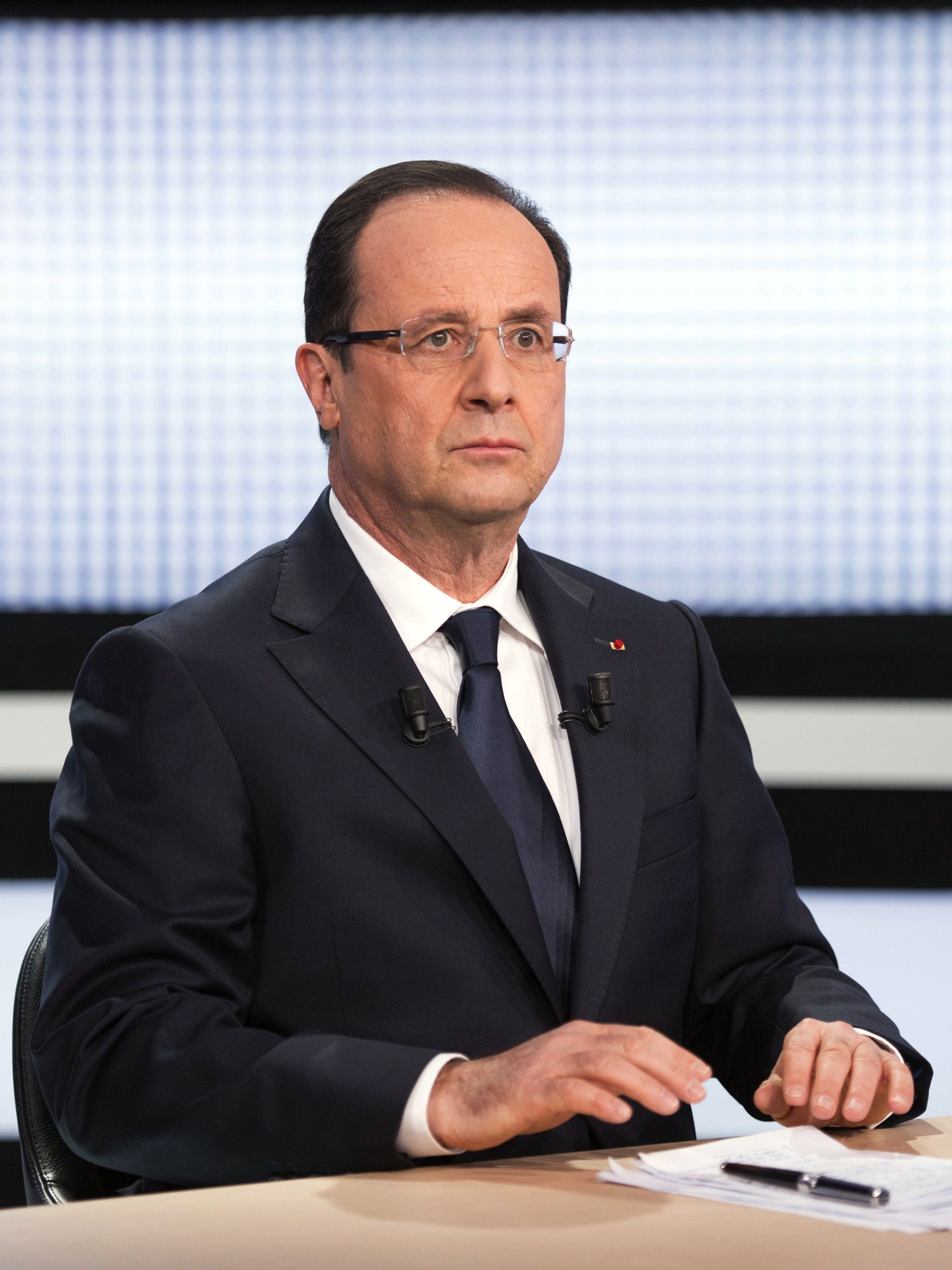France was described as the ‘sick man of Europe’ in the past but returned to health when a Socialist President changed his policies
The parallels between the François then and the François now are uncanny


Do not write off the French economy. If you feel tempted to do so – and France is the current chief contender for the title “sick man of Europe” – consider the following story. France is in its deepest recession since the Second World War. The new socialist President brings in a political economic strategy: higher public spending, higher taxes, a big increase in the minimum wage and in social benefits, and more intervention on how companies organise their business.
The result is disaster: unemployment surges to 12 per cent and the recession deepens. So after 18 months the President starts an about-turn in policy, cutting public spending and easing taxation. By the end of his term of office, virtually the entire initial programme has been abandoned. The economy responds with a similar about-turn and enters a long period of decent growth.
The President I am talking about, you may have guessed, is not François Hollande but François Mitterrand, and the year of his coming to power not 2012 but 1981. The parallels between the François then and the François now, are uncanny – in their names, their personal lives (it seems) but, most significantly, in their economic records.
So the question now is whether President Hollande is making a sufficiently radical reversal of his initial programme to kick-start the French economy. We cannot know the answer to that for a while, partly because we are only just getting the initial idea of the proposed changes in policy, and partly because we don’t know how the economy will respond. But what I think can be said is that the underlying strengths of the French economy are as solid as ever and there is no reason why with sensible policies France should not have a decent economic recovery.
These strengths include having not too big a manufacturing sector – about the same size as the UK’s. There are some parts which will shrink, such as mass car manufacturing, but others which can grow, such as luxury goods. There is a strong high-tech sector, strong pharmaceuticals, strong food and drink businesses. The balance of the services sector is different from that in the UK, with more tourism and less finance, but there as here the services sector will drive recovery. Note, too, that France, like the UK but unlike almost the whole of the rest of Europe, has a relatively high birth rate and the prospect of a rising population.
Why then does the country have unemployment at nearly 11 per cent, while ours is down close to 7 per cent? Why is London, in terms of its French population, France’s sixth-biggest city? To caricature, we export our retirees to France to benefit from their healthcare while they export their well-qualified young to benefit from our jobs market. The experience of the 1980s is that this is the result of a failure of policy, and that it is quite fixable. The best model is not Britain but Germany. It faced similar difficulties in the early 2000s, when it, too, acquired the “sick man” sobriquet, with its unemployment peaking at more than 12 per cent in 2005. Then a series of reforms, particularly to its labour market but also to its tax system, propelled it to its present run of success.
The task for France is twofold. One issue is how to preserve good-quality public services yet cut spending from its present 57 per cent, the highest of any large economy in the world. The other is how to reform taxation and labour legislation to boost employment. So there is both a fiscal issue and a regulatory issue. One is a matter of maths and politics, the other of pure politics.

On the first issue, the most helpful thing an outsider can do is point to the way in which other countries, Germany certainly but also Sweden, have managed to trim spending yet maintain services. Both have been criticised, Germany for its neglect of investment in public infrastructure, Sweden among other things for the squeeze on education. But in both cases the basic fabric of state services has been preserved.
On the second issue, the model is those reforms in Germany, which included the creation of so-called “mini-jobs”, jobs that are often part-time, poorly-paid, and outside the protected structure of the conventional German labour market. The recent decision to bring in a minimum wage is a partial response to criticisms of that approach. The Social Democrat Chancellor who pushed the reforms through, Gerhard Schröder, lost office – but millions of people got jobs that they would not otherwise have had. If that precedent is unattractive to François Hollande, the longevity of his own predecessor 30 years ago is a better omen.

Join our commenting forum
Join thought-provoking conversations, follow other Independent readers and see their replies